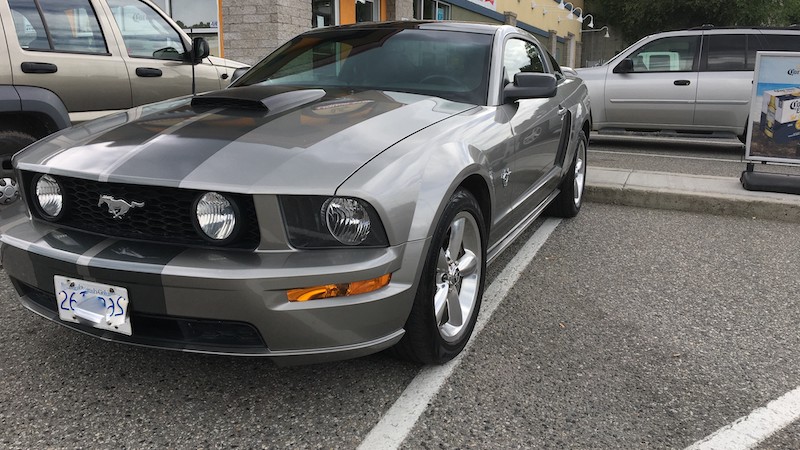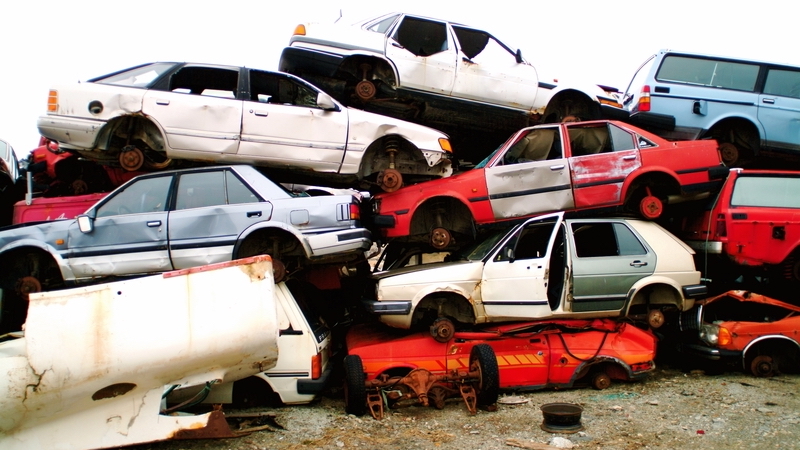Your Guide to Classic Car Auctions
7 things to know to get the ride of your dreams – and not be taken for a ride
Sure, there’s nothing like taking delivery of a new set of wheels – from the cherished aroma that is new car scent to the peace of mind that comes with a factory warranty.
But for those who subscribe to the “They don’t build ’em like they used to” philosophy of motor vehicle ownership, a head-turning vintage automobile is where it’s at.
One way to take ownership of that outrageous ’57 Cadillac Eldorado or that groovy ’68 Ford Mustang convertible is to attend a classic car auction. But be forewarned: From the rapid-fire auctioneers reciting babble that barely resembles English to the feeding frenzy that ensues when attendees make bids, a car auction can convey a circus-like vibe. Thus, if you do have your heart set on acquiring some vintage Detroit iron from yester-decade, being prepared is the best way to avoid that post-auction malady known as buyer’s remorse.
We recently caught up with Terry Lobzun of Collector Car Productions, an Ontario, Canada, auction house that specializes in vintage vehicle auctions. We asked what neophyte car auction attendees need to know before they start placing bids. His tips:
1. ‘WINDOW SHOP’ FIRST
When attending your first auto auction, leave your checkbook at home. Go as an observer so you can better make sense of the nuances to such a hyperactive buying environment. “For a first-timer, an auction can come across as being really intimidating,” says Lobzun.
Lobzun adds that one shouldn’t be shy asked what neophyte car auction attendees need to know before they start placing bids. His tips: when it comes to striking up a conversation with other attendees. They could be a wealth of information regarding the make and model of vehicle you’re keen on acquiring. Auctions attract numerous – and extremely knowledgeable – car enthusiasts. Chances are if they’re placing bids on cars, they love talking about cars, too.
2. DO YOUR HOMEWORK
Track down specialized magazines and websites such as Classic & Sports Car, Hemmings and Sports Car Market, all good reference tools.
“Some older cars may have electrical problems, others might have wheel well problems – you want to be an informed buyer before you start making bids,” notes Lobzun.
Thanks to the Internet, it’s easier than ever to get in touch with car clubs the world over, too. Club members can be a wealth of information regarding that sweet vintage ride that has your heart revving.
3. APPEARANCES CAN BEVERY DECEIVING
Lobzun notes that a dozen cars of the exact same make, model and year may look identical yet the price differential can be enormous. Among the factors to consider: the car’s condition, its documented history (Were all the repair bills kept? Was it owned by anyone famous?), mileage, whether it’s 100 percent original or restored (and if it has been restored, how good was the restoration?) Notes Lobzun: “I can show you a lineup of 10 ’67 Mustangs that might look identical but the difference in price from most- to least-coveted will be enormous.”
4. BRING ALONG A MECHANIC
Hiring an experienced mechanic to tag along to the auction with you could be the best few hundred bucks you’ve ever spent – even if you end up going home empty-handed. Since
you cannot test-drive the cars that are up for bids, a seasoned automotive technician can at least check under the hood and look underneath the frame to determine if a vehicle is likely to be a coveted cream puff or a loathsome lemon.
5. BUYFORTHELOVEOFTHECAR– NOT TO TURN A PROFIT
Much like the stock market, no matter how experienced the speculator, it’s almost impossible to outsmart the classic car market. Indeed, speculating on classic cars can be a fool’s errand. Lobzun says you should buy only because you really want to drive the car. Don’t buy a vintage set of wheels on the assumption you’re purchasing a can’t-miss blue-chip investment. Should that vintage GTO or Challenger happen to appreciate in value in the years ahead, consider that an unexpected bonus.
6. TIMING CAN BE EVERYTHING
Many car auctions run over the course of a weekend. Based on his experience, Lobzun says there aren’t usually as many people in attendance on Friday mornings and Sunday evenings and he’s witnessed amazing buys during these times simply due to the lack of competition. Sometimes it really does pay to be an early bird – or a late night owl.
7. KNOW WHEN TO WALK AWAY
Finally, if you do have your heart set on snagging a certain set of wheels and you end up going head-to-head with another individual who’s equally smitten, don’t allow emotion to eclipse reason. When the price no longer makes sense, stop making bids. Otherwise you run the risk of spending hundreds (or even thousands) more than what the car is worth.
Keep in mind if you don’t get that car you want so badly, there will always be other auctions down the road. Besides, what you’re placing bids on is a mass-produced consumer product – not Michelangelo’s statue of David.


